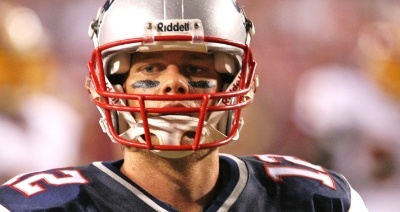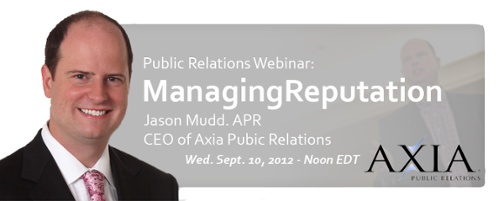 In addition to September’s status as Ethics Awareness Month, the arrival of fall signals the beginning of professional and collegiate football, tailgating and, of course, the return of the NFL to news headlines. However, those headlines aren’t exclusively focused on superstars, injuries and scores; rather, the spotlight illuminates a 2015 scandal (“Deflate-gate”) that rocked the NFL mere months after several players’ public domestic violence incidences.
In addition to September’s status as Ethics Awareness Month, the arrival of fall signals the beginning of professional and collegiate football, tailgating and, of course, the return of the NFL to news headlines. However, those headlines aren’t exclusively focused on superstars, injuries and scores; rather, the spotlight illuminates a 2015 scandal (“Deflate-gate”) that rocked the NFL mere months after several players’ public domestic violence incidences.
The Deflate-gate scandal has earned myriad headlines as NFL Commissioner Roger Goodell targets the Patriots’ beloved quarterback, Tom Brady, as a poster boy for all that is wrong in professional football. In contrast, Goodell seemingly forgot issues that plagued the league a year ago. Many critics opine that as those incidents surfaced, Goodell was slow to step up to the mic or take action. His inconsistent evaluation of circumstances and lax hand with player discipline enraged the public. At the tail end of last year, the NFL failed to tackle the wrongdoings of several players. But come January 2015, and Deflate-gate, Goodell operated with more speed and aggression and all but branded Brady and the Patriots with a scarlet letter.
The renewed approach placed Goodell, the Patriots, Brady and the NFL under intense scrutiny. Many scratched their heads, wondering why. How is it that the NFL was willing to throw money and lawyers at circumstantial evidence around Deflate-gate in January 2015, but showed little concern with holding domestic abusers accountable? The answer is quite simple: The NFL came down with a serious case of the ethics.
Recognizing that it could no longer serve as judge and jury without immense negative blowback, the NFL made a concerted effort to right some wrongs by elevating its own game. As a governing sports league, the NFL needed to hold its players, coaches, teams and staff equally accountable and decided to level the playing field by returning to its core values. It recognized that, given their high profiles, players, coaches and staff are all held to a higher standard and must behave accordingly. To ensure this message was loud and clear, the NFL took the following steps – which clearly led to the change in how it has managed itself in 2015 as opposed to years past:
1. Create and publicly share a code of personal conduct: In October 2014, after various player infractions, the NFL smartly revised its code and broadcast it across every imaginable platform. Anyone can now refer to a written document should any player or team be found liable for breaking the outlined league code. No longer is discipline in the hands of one individual on a case-by-case basis. In the event that a situation arises, the NFL now has a defined process to follow to which it can refer in each instance. The only absent component is a “sign in accordance here” page for each player.
2. Uphold the code: While many were shocked at the shift in Goodell’s approach to rumors of player/team misconduct, his actions were arguably directly in line with the reinstituted code. It reads, “If the league finds that you have engaged in any of the following conduct, you will be subject to discipline,” followed by a laundry list of infractions, the very bottom of which notes, “Conduct that undermines or puts at risk the integrity of the NFL, NFL clubs or NFL personnel.” That is what Goodell hung his hat on as the league proceeded to take legal action against Brady and the Patriots. While doing so publicly attacked a golden-child favorite, Goodell’s mission was clear: to prove to the public and league constituencies that the code of ethics isn’t just a piece of paper.
For many New Englanders, Deflate-gate is vastly considered a modern-day witch hunt. Yet, it seems more obvious now that Goodell, rightly or wrongly, is attempting to ethically uphold the NFL’s revised code of conduct. The league has endured tremendous scrutiny for a lack of ethics in the past and is seemingly attempting to remedy those wrongs, given that it unsuccessfully weathered a 2014 brand crisis. As Michael Jackson said once, “The bigger the star, the bigger the target.”
Deflate-gate will no doubt become a case study not only in crisis communications, but in reputation management as well. The NFL learned from within a tailspin that core-based ethics were its salvation.
To learn more about key strategies for successfully managing your brand and reputation, watch Axia Public Relations’ webinar on reputation management.
 Wendy Bulawa Agudelo has more than 15 years of experience in technology, business, consumer and non-profit public relations. In addition to serving on the Massachusetts Down Syndrome Congress PR Task Force, Wendy enjoys cooking and rooting for her favorite New England teams.
Wendy Bulawa Agudelo has more than 15 years of experience in technology, business, consumer and non-profit public relations. In addition to serving on the Massachusetts Down Syndrome Congress PR Task Force, Wendy enjoys cooking and rooting for her favorite New England teams.
Topics: public relations, ethics, crisis communications



Comment on This Article